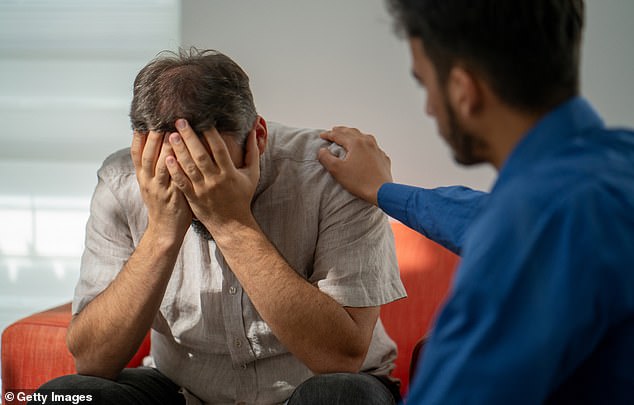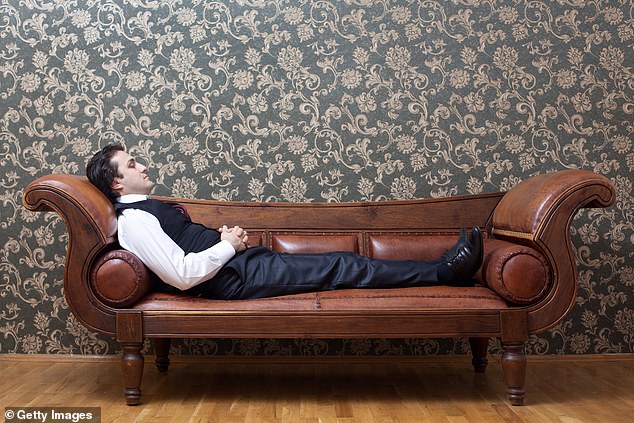Table of Contents
When my boyfriend broke up with me unceremoniously and in public, I was in shock. Not because I get dumped so often (it happens to all of us), but because I never imagined that this particular man would do it so brutally.
After all, he was very fond of talking about feelings and emotional intelligence. In fact, he was in therapy.
“But… did you think therapy was supposed to make people nicer?” I asked pathetically. I didn’t find it pleasant at all.
That was back when being “in therapy” was something you only shared with your nearest and dearest, or at least kept private until you’d been on a few dates with a new love interest. Now, however, it’s become a badge of honor in dating.
Dating app Hinge claims that 84 percent of UK users would prefer to date someone who goes to therapy. Tinder reports that 75 percent of users are more attracted to people who are working on their emotional wellbeing. Hopeful users of these apps often proudly mention on their dating profile that they are “in therapy” and going over what they have learned in sessions is now a common theme on first dates.
Research from the British Association for Counselling and Psychotherapy shows that almost a third of adults have sought talking therapy in the past 12 months – more than ever before.
Lucy Holden recalls dating a man in his 30s who understood that he really needed to resolve some deep issues, but never did; instead, he saw himself as a victim and blamed others for everything that happened to him.
So what’s the truth about dating someone who’s in counseling?
“While individual therapy can greatly benefit the couple attending, it can also be challenging for the other couple,” says Dr. Limor Gottlieb, a sexual and relationship psychologist (drlimorgottlieb.com). ‘Therapy can bring to light unresolved issues affecting the relationship, leading to periods of instability or intense self-reflection that may be difficult for the couple to overcome.
‘Giving someone in therapy space and time to process difficult emotions from old wounds without taking it personally is crucial.’
Having dated men at many different stages of the process (and having done therapy myself), my experience tells me that it’s complicated, and more often than not, it’s not you, it’s them.
So here’s my guide, with some help from experts, to avoiding the pitfalls of dating a man in therapy…
Beware of the man who talks about therapy, but doesn’t go
Nowadays, it is generally considered a good thing to be “in therapy,” because it suggests a man who is not afraid to be vulnerable.
“Anything that improves our emotional stability is likely to benefit our relationship,” says Toby Ingham, a psychotherapist who lives near Oxford (tobyingham.com). ‘Therapy can allow a man to understand more clearly the things that have overshadowed his life, such as deaths, divorces, breakups or betrayals.’

Dating app Hinge says 84 percent of UK users would prefer to date someone who goes to therapy, while Tinder reports that 75 percent of users are more attracted to people who are working on their emotional wellbeing.
But beware of modern guys who say they’ve “always wanted to try it” but never actually tried. This is the equivalent of the guy who claims to be a “feminist” but cheats on his girlfriend.
At worst, this man is afraid of real emotions. At best, he is a slacker.
One man I dated was in his early 30s when we met and he had known for over 20 years that he really needed to sort out some deep issues. However, he never did. Instead, he saw himself as a victim and blamed other people for everything that happened to him.
Stay away in the early stages
I know from personal experience that therapy is not exactly a fun process. Before relief and lifting some of the weight, there are tears, anger, and a lot of questions. Who wants to relive the worst moments of their life?
The overwhelming nature of this can lead people to believe that they need to be alone or become extremely irritable with their partner. For a partner, this can mean living with little care or even being abandoned over something insignificant that normally wouldn’t have caused any problems.
“If someone starts therapy early in a relationship, they may find that they need to focus solely on their personal issues, which could lead to a breakup,” explains Dr. Gottlieb. “It’s not uncommon for people to feel like they need space to work on themselves without the added complexities of a relationship. This can be difficult, but it’s ultimately beneficial if it leads to healthier outcomes for both partners. It’s important for partners to offer understanding, patience, and space, and most importantly, not take it personally.”
That’s what happened to me. I had my heart broken so he could try to protect himself from being hurt. And I’m afraid I took it personally. My advice? Think carefully before you get involved with someone who is just beginning the therapy process.
Check out your therapist
Not all therapists are created equal. Find out what methods your couple’s therapist uses and how often they conduct sessions.
Some therapists offer lower rates if you agree to see them more frequently than usual (once a week for 50 minutes is typical). This intensity is conducive to their development, but not necessarily to that of others.
Another man I dated went to therapy several times a week and had become so self-absorbed that he could barely stop talking about himself long enough to make eye contact. Every sentence echoed a therapy session: “I… I… I…”
After we broke up, I always wondered if he would have been as self-centered if we’d only had one hour-long session a week, and if that would have increased the chances of us staying together.
Dr. Gottlieb states, “Being in therapy does not automatically make someone a better or easier partner than someone who is not in therapy. Therapy can sometimes reveal narcissistic tendencies, especially if the person becomes excessively self-centered or uses therapy as a way to justify harmful behavior.”
Don’t trust a man who quotes his therapist
At first, a little leeway is necessary here, it’s true, because talking about (often) traumatic issues can be a terrifying and draining experience. But no one wants to sound like one of those Americans who’s been in therapy since they were 15 and constantly quotes their “shrink.”

Lucy recommends dating men who see their therapist once a week for about an hour rather than those who see them several times every seven days.
Don’t pressure him to tell you what they’re talking about.
“Try to remember that therapy is a confidential conversation and that many people find it difficult to talk about it with other people,” Ingham explains. “Try to give them space to work through their issues without being too intrusive. You both need space to be yourself. Try not to be bothered by them talking to someone else instead of you.”
Dr. Gottlieb adds that it’s also helpful to be on the lookout for red flags. “If one partner seems to be focusing excessively on the same issue without making progress, it could indicate that there is an unresolved issue that could negatively impact the relationship.”
I’m looking for a man who has finished therapy, for now.
Most therapists agree that most of us can benefit from taking breaks from their services. The middle ground is a man who has been in therapy, has taken a break, but remains open to the idea of working more on himself in the future.
Dr. Gottlieb states, “Long-term therapy without a clear goal may suggest a dependency on the therapeutic process, whereas short-term, goal-oriented therapy may indicate a proactive approach to problem solving. Both approaches have their merits, but it is critical for partners to understand and support their loved one’s therapeutic process while maintaining their own emotional well-being.”
Find a man who listens to you like a therapist
During my own sessions, I began to wonder whether seeing a psychotherapist or counsellor would be cheaper than paying £45-£70 for a weekly appointment. After all, there were plenty of dating apps out there.
In the end I decided that maybe he was a little weird, but I looked for a man with some of the attributes I would value in a therapist.
I am currently in the best relationship I have ever had and I am sure that is partly because he is a good listener, he protects me in the right way and he wants to understand me and my past so that our future together will be better. He is also calm and non-judgemental.
“It makes sense that women are attracted to men in therapy because it indicates a commitment to personal growth, emotional intelligence, self-awareness and healthy communication,” explains Dr. Gottlieb.
‘When it comes to how to date a man in therapy, it’s all about finding the right balance between open communication and respecting his privacy. It’s also important to be supportive and acknowledge his progress without overstepping boundaries or taking on the role of therapist. Therapy is a process, so women shouldn’t expect drastic or overnight changes.’


